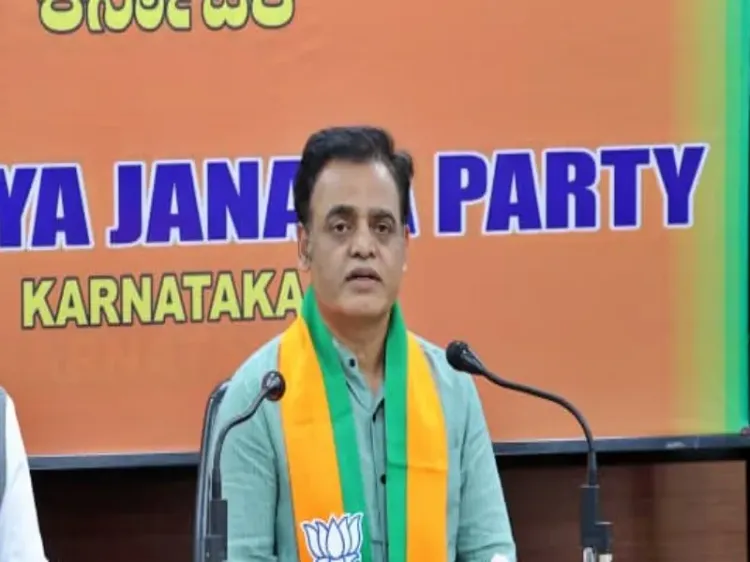Has the GST Council Made a Revolutionary and Historic Decision? Ex-K'taka Dy CM Ashwath Narayan Thinks So

Synopsis
Key Takeaways
- GST reforms aim to control inflation
- Introduction of a simplified two-slab tax system
- Life and health insurance taxed at 0%
- Positive changes for agricultural tax rates
- Unanimous support from all state governments
Bengaluru, Sep 4 (NationPress) Former Deputy Chief Minister of Karnataka and BJP legislator C.N. Ashwath Narayan praised the recent GST reforms, asserting that the GST Council has made a transformational and landmark decision aimed at controlling inflation and enhancing production.
During a press conference at the BJP state office, Jagannath Bhavan in Bengaluru, he expressed that the citizens of Karnataka and the BJP state body wholeheartedly embrace this decision and wish to convey their appreciation.
“Previously, there was no concept of ‘One Nation, One Market’. There were numerous barriers and constraints between states. To address this, our esteemed Prime Minister Narendra Modi, along with all state governments, reached a consensus. The implementation of GST is a result of this unity,” he said.
He highlighted that adjustments have been made to the tax slabs in response to industry and citizen demands.
A more streamlined and logical tax structure has been rolled out.
“The call for a two-slab system has been acknowledged. The 12% and 28% slabs have been eliminated, leaving us with only 5% and 18%,” he commended this initiative.
He mentioned that this change would help reduce inflation and stimulate production, while also broadening market availability.
Pointing out significant reforms, Ashwath Narayan stated: “Life and health insurance will now be taxed at 0%. This is indeed a very encouraging measure, making life and health coverage more accessible. In agriculture, the tax has been decreased from 12% to 5%. Essential daily-use consumer goods will now fall within the 0–5% range. Additionally, this decision will invigorate the automobile industry.”
Ashwath Narayan emphasized that this was a unanimous decision made with the cooperation of all governments, branding it a forward-thinking and non-partisan reform.
He congratulated Prime Minister Narendra Modi, Finance Minister Nirmala Sitharaman, and all state Chief Ministers on this achievement.
Criticizing the Congress-led government in Karnataka, he stated: “Since taking office, they have raised taxes and amassed over Rs 1.5 lakh crore, increasing property taxes, vehicle taxes, waste management fees, excise duties, fuel prices, and even hospital OPD fees. Unjustified price hikes have been implemented across the board. While the Centre has endeavored to simplify processes, provide relief, and lower rates, the state government has only added burdens to the citizens.”
He further characterized the GST reforms as progressive, scientific, timely, and suitable.
“These measures aim to boost production, support industries, and ensure economic advancement. Who could have imagined that GST collections would soar to such heights?” he queried.
BJP State Economic Cell convener Prashanth G.S. was also in attendance at the conference.









